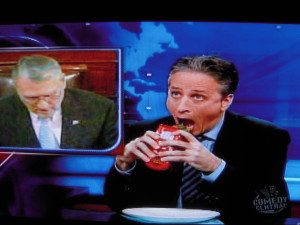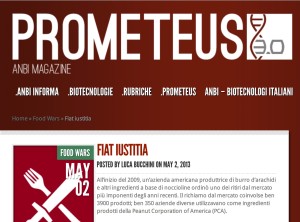A Georgia peanut plant manager testified Friday that his company had been shipping contaminated nuts with fake documents showing them to be salmonella-free before the plant was identified as the source of a nationwide outbreak that killed nine Americans and sickened more than 700.
 “In my mind, I wasn’t intentionally hurting anyone,” Sammy Lightsey told jurors at the trial of his former boss, Peanut Corporation of America owner Stewart Parnell, and two others.
“In my mind, I wasn’t intentionally hurting anyone,” Sammy Lightsey told jurors at the trial of his former boss, Peanut Corporation of America owner Stewart Parnell, and two others.
Lightsey, who managed the plant from July 2008 until the company went bankrupt following the outbreak in 2009, pleaded guilty to seven criminal counts in May after agreeing to testify for prosecutors in exchange for a lighter sentence. He was the top manager at the peanut plant, reporting directly to Stewart Parnell.
Soon after taking the job, Lightsey said, he discovered that peanut paste was being shipped to Kellogg’s for use in peanut butter crackers the same day they were produced, without waiting the 48 hours it takes to receive results of lab tests for salmonella and other contaminants.
Rather than wait, Lightsey said, the plant would ship paste with lab results that actually came from different batches tested a week earlier, certifying they were negative for salmonella.
Lightsey said he confronted Michael Parnell, who handled the contract for Kellogg, one of the company’s biggest customers.
“I went to the office and called Mike Parnell and I told him we can’t do this; it was illegal and it was wrong,” Lightsey said. “He informed me it was set up before I got there and don’t worry about Kellogg’s, he can handle Kellogg’s.”
Lightsey said he didn’t push the issue further. He didn’t say if he ever discussed the fake lab results with Stewart Parnell.
In a related story, Russ Bynum of TribTown writes that jurors are learning a disconcerting fact: America’s food safety largely depends on the honor system.
“Could all these people have been charged criminally with something? The answer is, hell yes,” said Bill Marler, an attorney who claims to have won $500 million for victims of foodborne illnesses over the past two decades.
“I’m a firm believer in using the civil justice system to hold people accountable. But these criminal prosecutions have really got people’s attention,” said Marler. “It’s a completely different viewpoint that these CEOs and managers have when they’re facing jail time and fines that aren’t insured.”
Meanwhile, the FDA lacks the resources to regularly inspect food producers, and when outbreaks happen, they largely depend on their goodwill to find the source.








 The Atlanta Journal-Constitution reports today
The Atlanta Journal-Constitution reports today